Chicken Pox (Varicella Zoster)
Chicken Pox, also know as varicella, is an illness caused by a virus called the varicella zoster virus (ZVZ). It is normally a relatively mild illness in child hood and a normal part of your kids health. It has a famous rash and is very infectious. There is a vaccine against chicken pox although it is not available on the public health system in many countries.
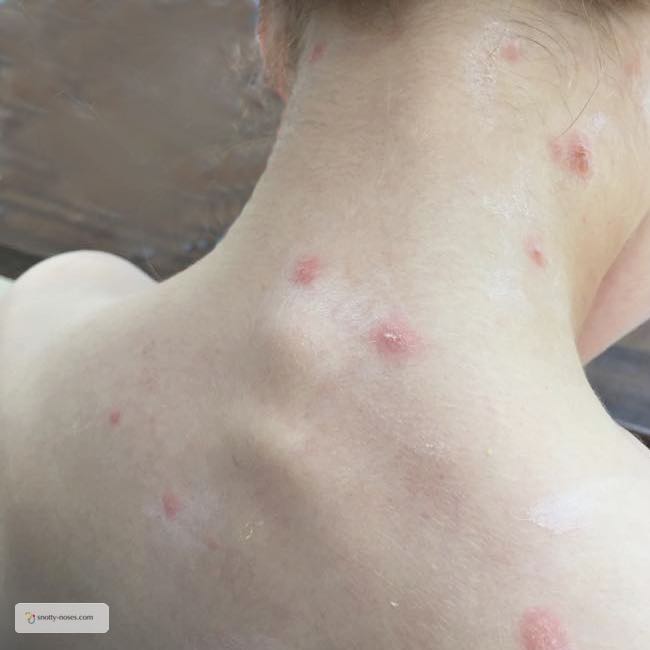
Chicken Pox Symptoms
Chicken Pox starts with a ‘prodrome’ stage when children may be mildly unwell with a slightly raised temperature. They may have a generalised, non specific rash all over them. The rash starts on the trunk or the scalp and spreads over the entire body. The rash then changes into a typical chicken pox rash; red spots with a little watery blister in the middle. These spots soon crust over and are very itchy. The spots will continue to appear and often come in crops.
Chicken Pox Stages
- Prodrome phase, non specific rash, mild fever
- Typical rash, red with a watery blister, itchy
- Rash scabs over, also itchy
Children are contagious until all the lesions have crusted over.
The incubation period is 10-21 days. This means that it is 10 -21 days from when they catch the illness to when they start becoming unwell. Children are infectious from 48 hours before the onset of the rash, until all the lesions have crusted over.
Chicken Pox Rash
At first, the chicken pox rash looks like any other rash. Then it starts to look more like chicken pox, with little watery blisters in the middle. The rash typically appears in clusters and may appear anywhere on the body, including the scalp. After a few days, it starts to scab over as the blisters form crusts.
What does Chicken Pox look like?
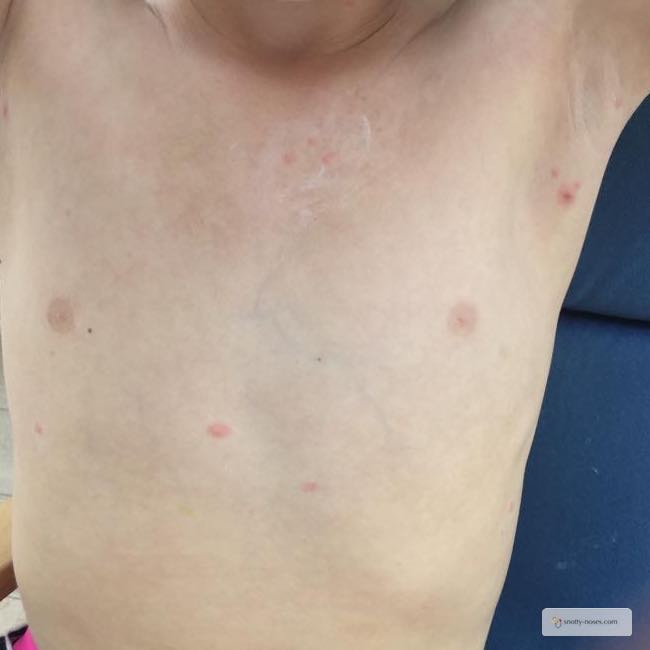
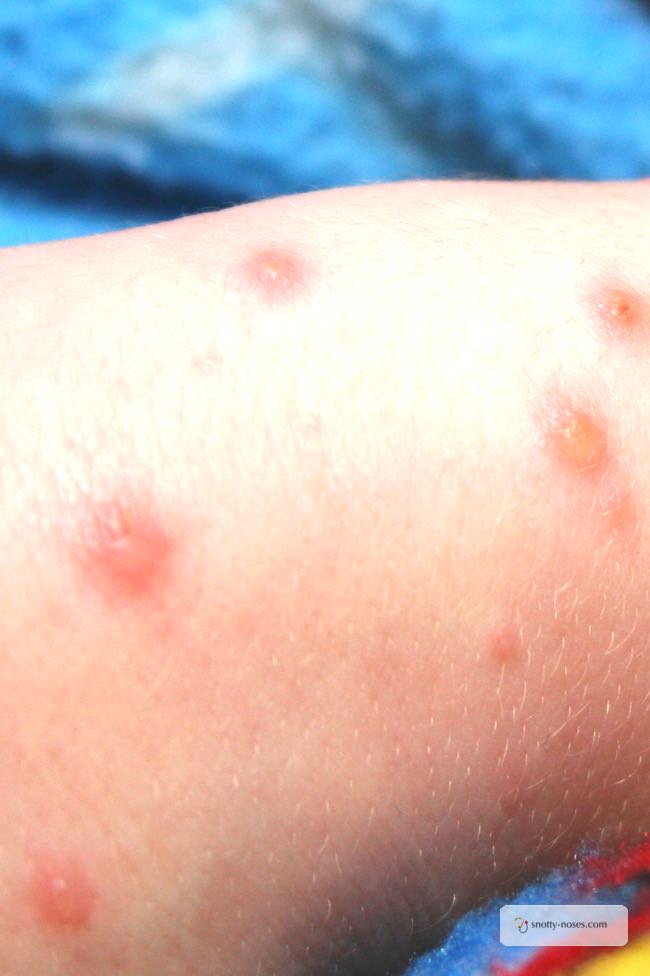
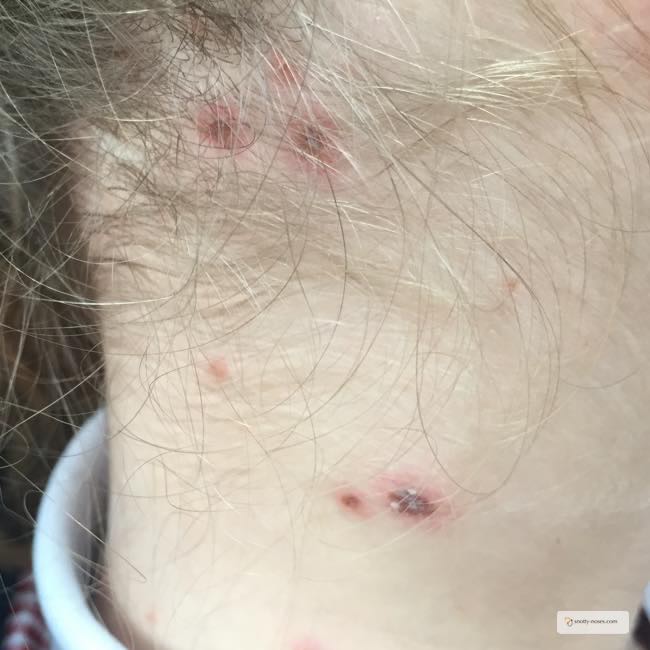
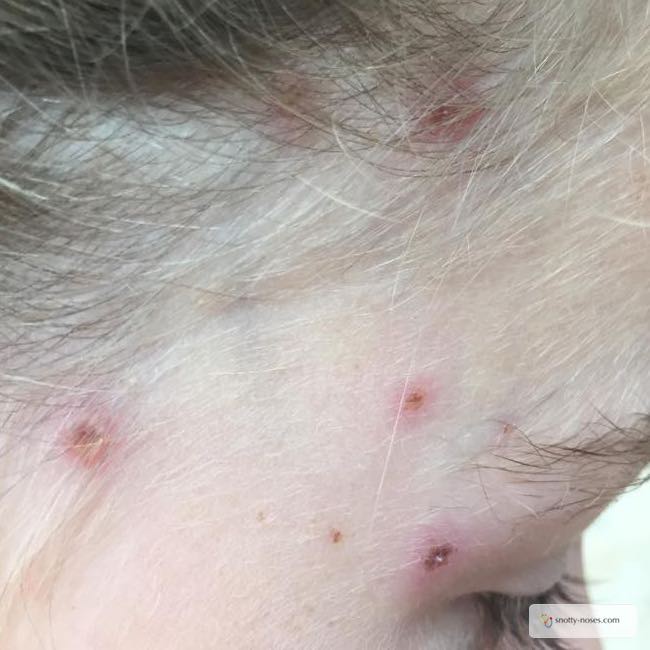
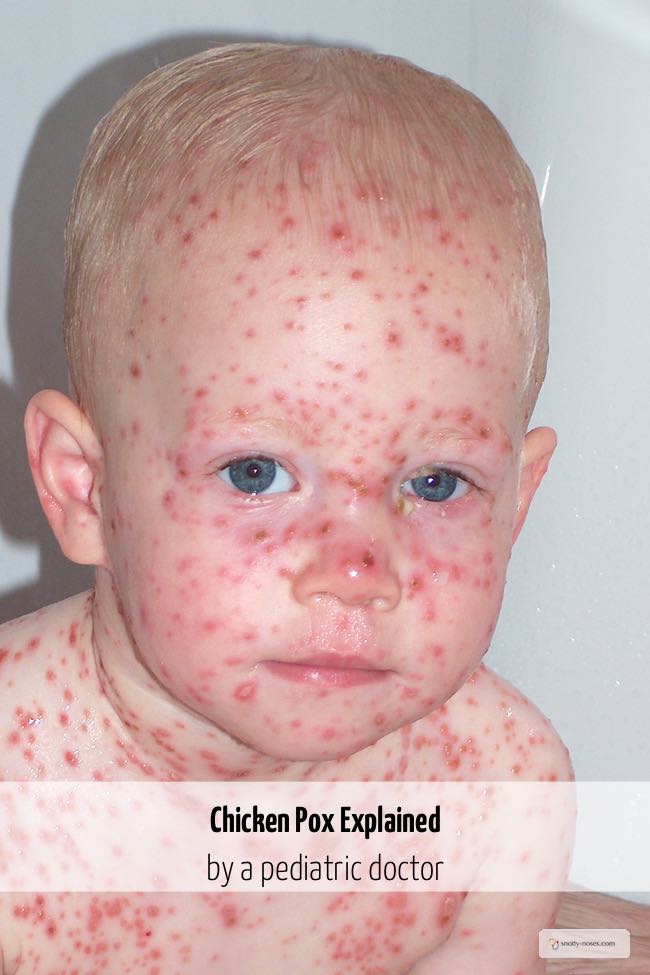
Chicken Pox Treatments
Your child should stay off nursery until all their spots have crusted over. They should also be kept away from pregnant women who are not immune to it. If you have had chicken pox and your child is unwell with it, you can not pass it on to other people.
Generally chicken pox is quite mild and children do not need to go to the doctor. The main problem is the itch. You can try a soothing lotion such as aloe vera. You can also try an antihistamine syrup that you can buy from the pharmacist.
Antiviral treatments are used for children who have very bad symptoms and young babies.
Medicine and Chicken Pox
If your child has a temperature, you can give them a dose of paracetamol (ace). Ibuprofen is not recommended for children with chicken pox as there is a small risk that it can cause skin reactions. (It is also not recommended if your child has asthma or is dehydrated.)
Can you get Chicken Pox again?
Once you have had chicken pox, you aren’t supposed to be able to get it again. However, there are many urban myths of people who get it more times. Perhaps a few people don't build up sufficient immunity to it, so they are susceptible to getting it again.
Chicken Pox and Shingles
Shingles and chicken pox are caused by the same virus. Once you have had chicken pox, the virus can lay dormant and re-emerge later in life as shingles which can be very painful. It is possible to get your child vaccinated against chicken pox which should stop them from getting shingles later in life.
You cannot catch shingles from someone who has either chicken pox or shingles. You can however, catch chicken pox from someone who has shingles.
Chicken Pox Vaccine
There is a chicken pox vaccine that is available in most countries, although often not on the public healthy service.
Complications of Chicken Pox
It is possible to get a bacterial skin infection on top of the chicken pox spots. The skin will be red and angry.
There are other rare complications of chicken pox such as pneumonia, hepatitis and encephalitis. If you think your child is more unwell than you would expect, or you are worried in anyway, go to the doctor.
Chicken Pox in Babies
Young babies have a very immature immune system so are more at risk of chicken pox than older children.
If your baby is very young, under a month old and develops symptoms of chicken pox, take them to a doctor. If your baby is under 7 days old and is exposed to someone who has chicken pox, or if the mother of a baby develops chicken pox from 7 days before to 7 days after delivery, take the baby to a doctor so that they can be given antibodies to prevent them from becoming unwell.
Take your Baby with Chicken Pox to the Doctor
- Under 1 month and has symptoms
- Under 7 days and exposed to chicken pox
- If mother of baby develops chicken pox before the baby is born and up to 7 days after it is born
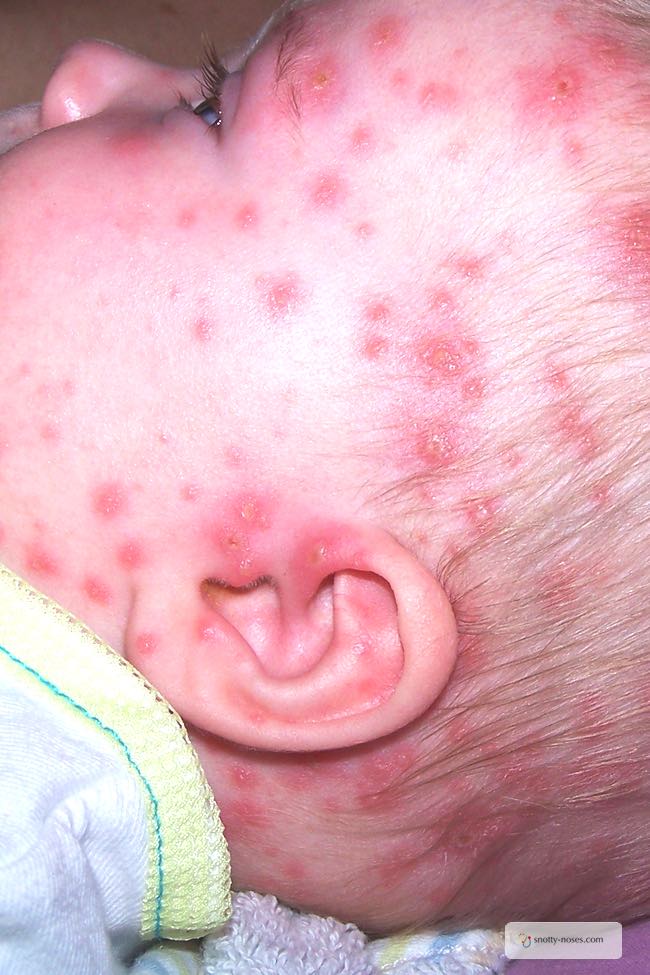
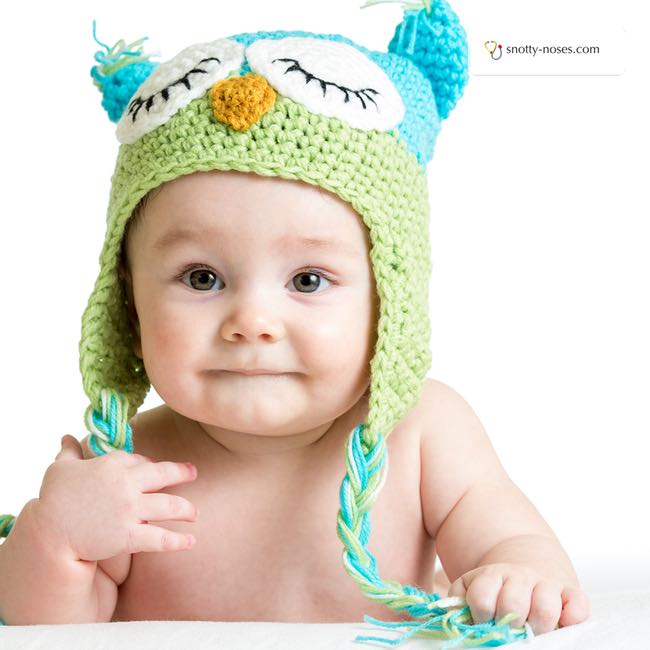
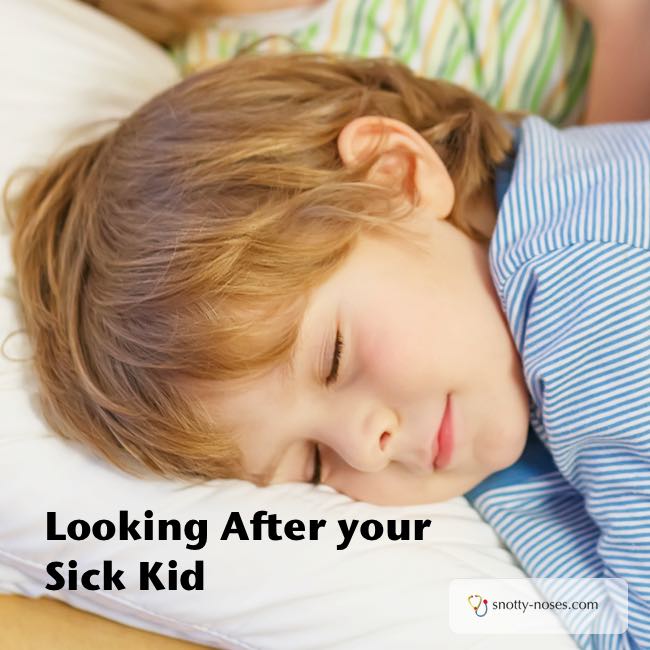
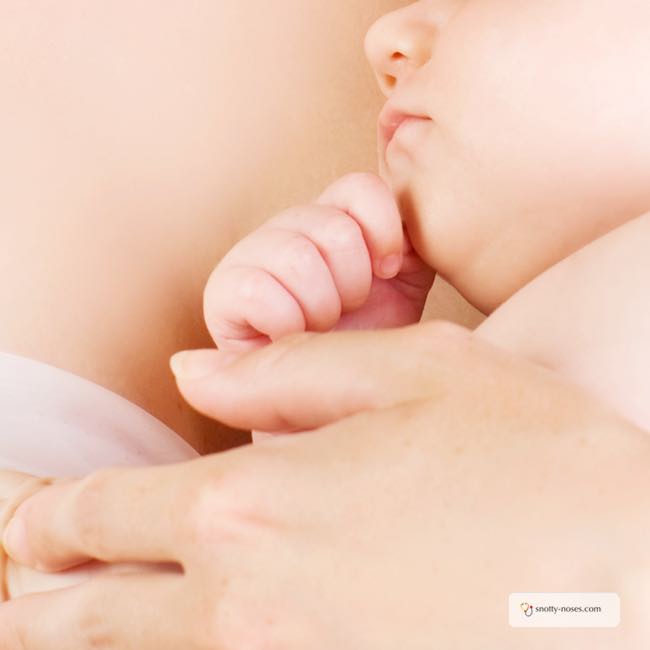
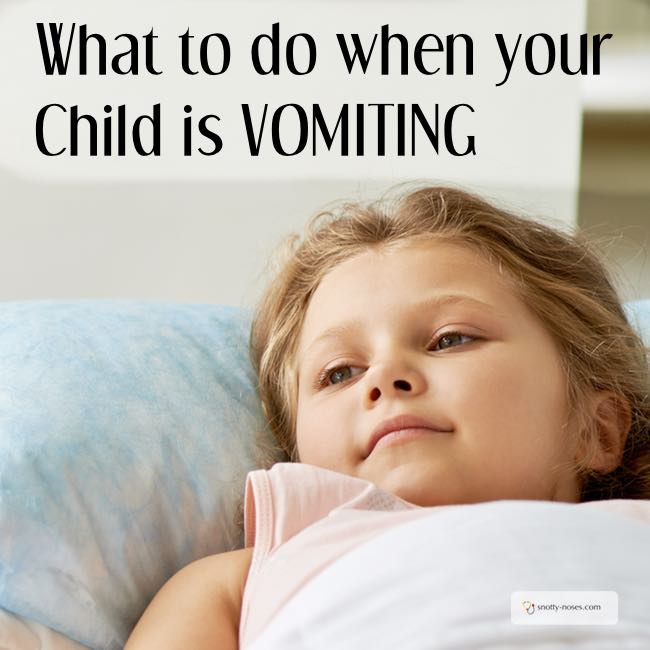
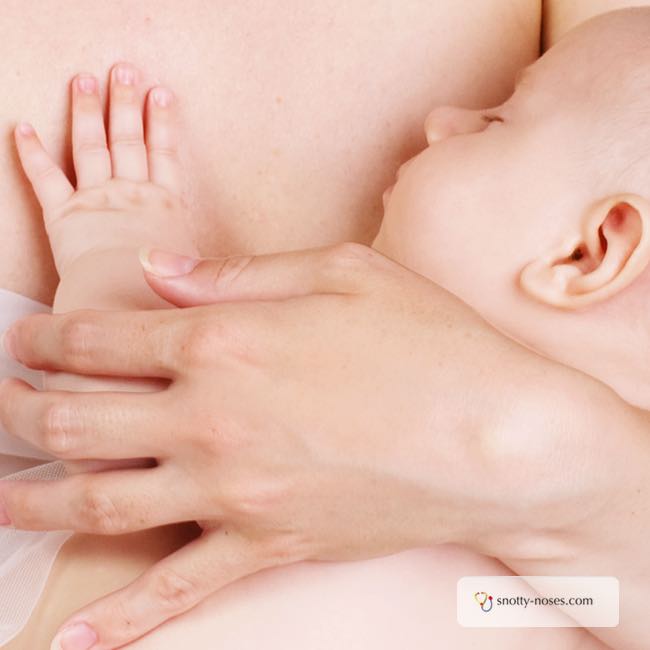
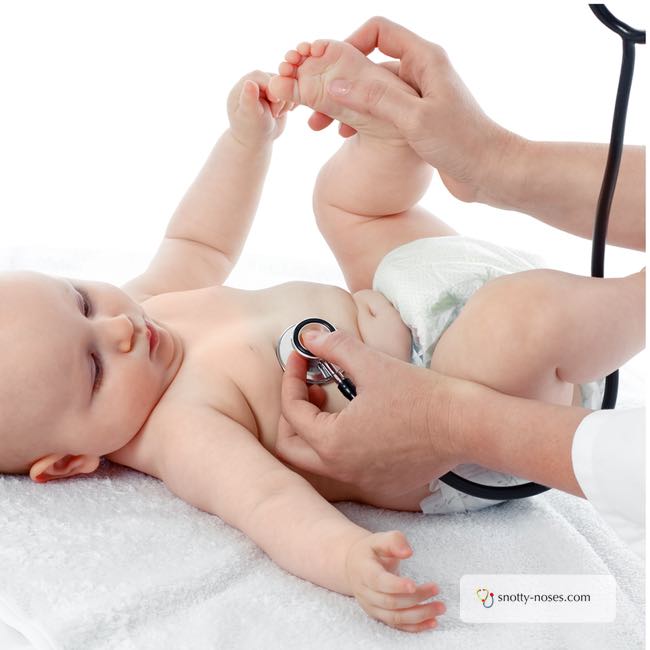
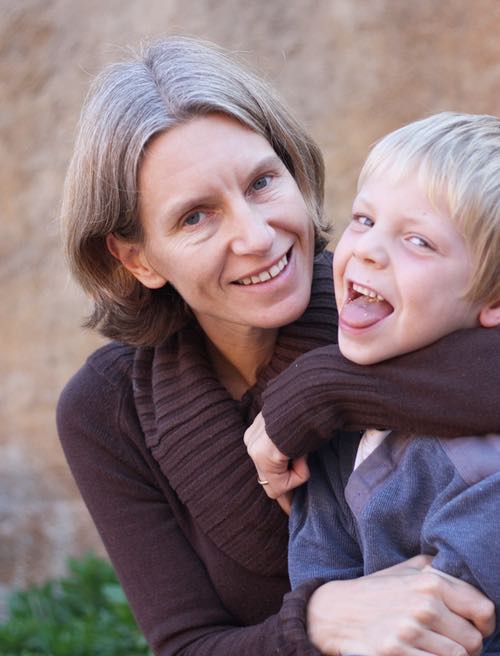
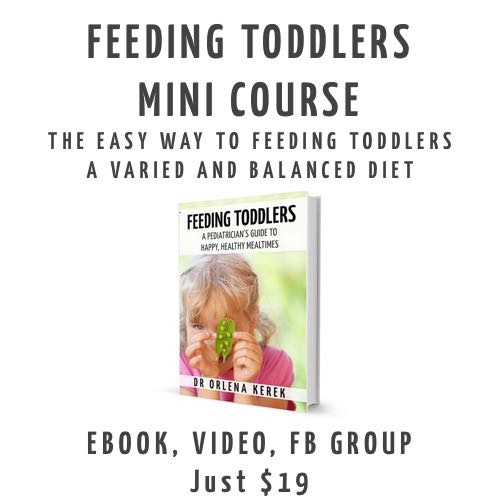 Feeding Toddlers.
Feeding Toddlers. Would you like your kids to eat more healthily? Check out the book!
Would you like your kids to eat more healthily? Check out the book!